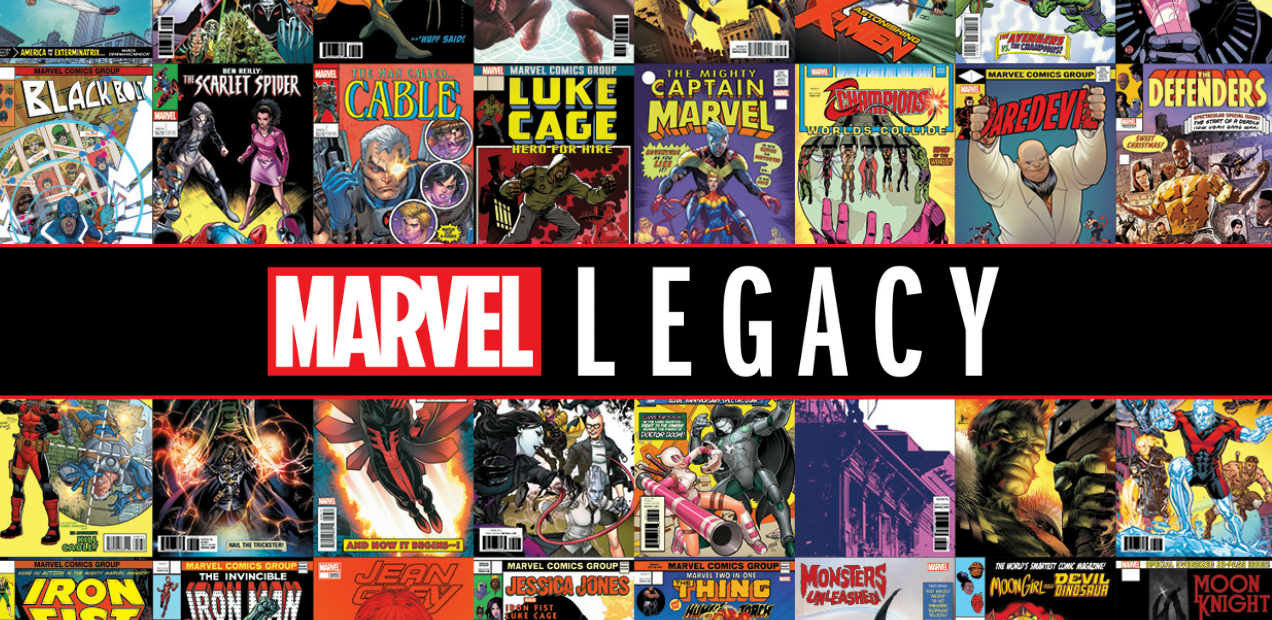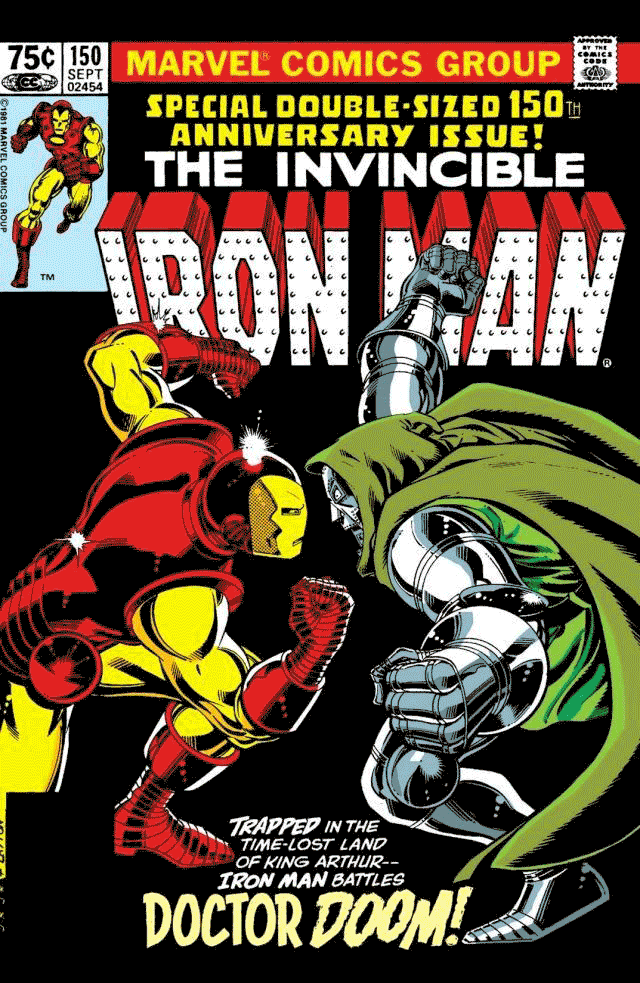
Make Mine Marvel! Or don’t. Comic shops have had enough and are putting their feet down when it comes to the publisher’s latest sales gimmick centered around the upcoming event ‘Marvel Legacy‘. Marvel is offering alternate lenticular covers for each of its 53 titles, but in order to qualify to get these special covers, comic shops are being asked to order 225% the number of copies of the regular editions than they do normally. For instance, if a comic shop usually orders 10 copies of ‘Iron Man’ each month, they must order 23 (-ish) copies of the regular edition in order to be able to order the version with the lenticular cover. If that store has 10 regular customers who normally buy ‘Iron Man’ but those customers all want the variant edition, then the store is stuck with 23 copies of the regular version which they probably won’t be able to sell.
Lenticular refers to a type of art that changes appearance when you tilt it at different angles. These Legacy books will feature classic Marvel covers that change into a modernized homage recreation. Most, but not all, will showcase legacy characters (thus the title of the event). For example, below is the cover for ‘Iron Man’ which features the original cover to ‘Iron Man’ #150 from 1981 which changes into an updated image with Riri Williams a.k.a. Iron Heart in place of Tony Stark.

This isn’t a new practice. Many publishers have offered variants of certain titles requiring that stores order X number of copies of the regular version in order to get the special cover, but what makes this different is that ‘Marvel Legacy’ is a line-wide event, meaning all 53 of its ongoing books will be part of it. Retailers are calling Marvel’s bluff. While some stores may do what Marvel is asking in order to get the alternate covers (many stores sell these editions at an immediate mark-up), others are refusing and advising their customers that they will not be offering these special versions.
Brian Hibbs, who owns two Comix Experience stores in San Francisco wrote:
“If you get 225% of the one you can order the other, more desirable version, but then you lose pretty much any demand for the ‘regular’ edition in the first place, even if you can sell 300% or more of the fancy version. Literally, you are being asked to purchase comics you can’t sell, in order to gain access to comics that you can. While a small handful of people are willing or able to buy multiple copies of the same insides, the largest majority of customers just want a single version to buy.”
Hibbs’ s sentiments are echoed by other shop owners, like Jesse James Criscione owner of Jesse James Comics in Glendale, Arizona, who said:
“I have tried to crunch numbers and have spoken to a lot of other stores and find that I’m not alone. We would have to order more regular covers than we could ever sell just to qualify for a lenticular.”
Rochester, New Hampshire’s Ralph DiBernardo, owner of Jetpack Comics wrote in a letter to his customers:
“It’s a very strange business model to put one’s primary customer base in a position to have to purchase 2 to 2.25 times the product it knows it can sell to provide the 1 times quantity it needs for its customers.”
Marvel has responded… somewhat. The publisher has relaxed the requirements of newer titles, like ‘Cable’ and ‘The Defenders’, but the order requirements remain in place for more established titles.
At this time, about 70 retailers have declared that they won’t be offering the lenticular covers. This includes online retailers which may account for more than brick and mortar stores. That may not sound like a huge number, but this may be the first step in retailers standing up for themselves against larger corporate entities. The comic industry continues to become more and more of a specialty market. Not only the publishers, but Diamond Distributors, the “middle man” that distributes comics and other merchandise to stores have been accused of abusing their power and, in essence, punishing local comic shops with their stringent requirements.
So 70 retailers standing up against a larger company like Marvel could lead to “the little guy” saying no to other demands in the future.
What do you think? Are these comic shops wrong to deny their steady customers these more deluxe, possibly more desirable items? Or is Marvel in the wrong for making such a huge demand of what are, basically “Mom and Pop” shops?
Source: The Hollywood Reporter
